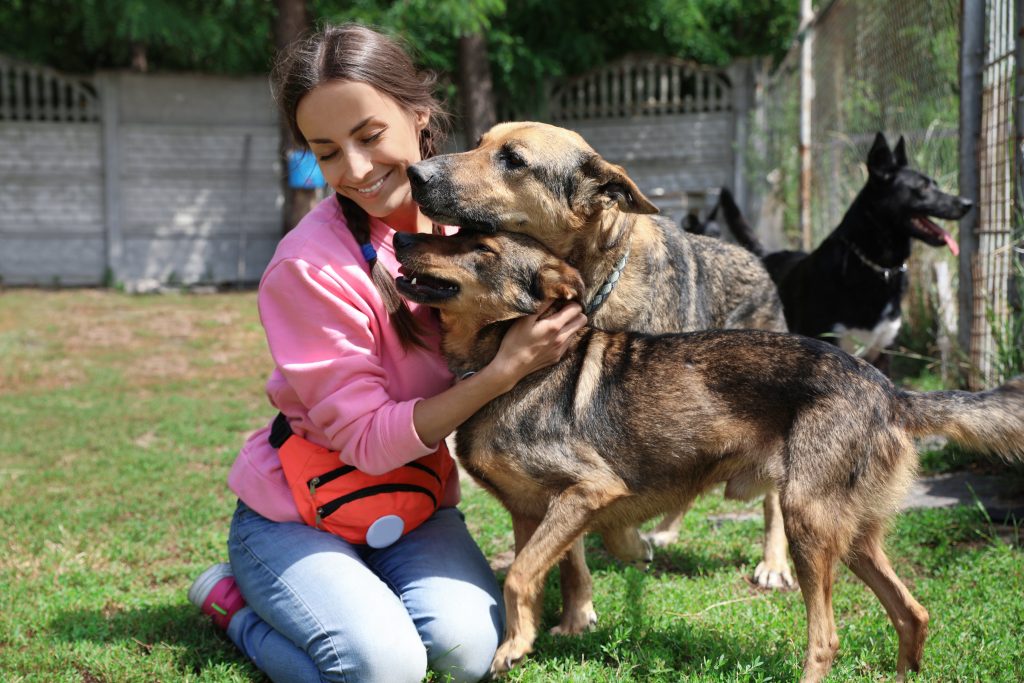Contents
 Animal care workers have a unique client base. They work closely with animals, feeding, grooming, and exercising pets and other types of animals. Depending on the specialty – both animal and service type – you will need to find a degree for animal care workers that best suits your career. In this article, we discuss the different types and levels of education for animal care workers and answer the question: What degree does an animal care worker need?
Animal care workers have a unique client base. They work closely with animals, feeding, grooming, and exercising pets and other types of animals. Depending on the specialty – both animal and service type – you will need to find a degree for animal care workers that best suits your career. In this article, we discuss the different types and levels of education for animal care workers and answer the question: What degree does an animal care worker need?
Education for Animal Care Workers
Animal Care Worker Schooling Animal care workers should have at least a high-school diploma or its equivalent. Most employers require candidates to have graduated from high school. However, depending on the position, specialized schooling may also be required. Pet groomers receive a unique type of training. Although pet groomers often learn their skills while being mentored on the job, they may also attend pet groomer school. In pet grooming school, students learn how to provide services such as:- Bathing
- Brushing
- Fur trimming
- Nail clipping
- breed standards and grooming techniques
- emergency pet care and first aid
- the history of grooming
- biology
- marine science
- a closely related discipline
- animal science
- biology
- a related discipline
- Animal science
- Biology
- Marine biology

Beyond the Animal Care Worker Degree: Licensing and Certification
While it is not always required, like the degree for animal care workers, some jobs do ask for licensing or certification. Certifications help animal care workers showcase their skills to potential employers. Certifications showcase their skills and make it known that they have deeper knowledge and training in a specific area of animal care. Some of the most well-known certifications for animal care workers include:- National Association of Professional Pet Sitters certification
- National Dog Groomers Association of America certification
- Pet Sitters International certification
Other Experience for Animal Care Workers
In addition to animal care worker schooling, it helps to have experience working with animals. If you’re fresh out of school and have limited experience working with animals, you might try volunteering at an aquarium, pet boarding facility, veterinarian clinic, or zoo. Volunteer positions are excellent ways to gain valuable work experience. Whether you’re a dog walker, kennel cleaner, or aquarium guide, you’ll be able to build up a certain number of hours working with animals in an animal care facility. As a result, you’ll be able to add experience to your resume.Other Important Qualities Needed for Animal Care Workers
In addition to schooling and/or training, animal care workers should possess certain qualities that aren’t always taught in a classroom. Animal care and service workers spend their days caring for and training animals. As a result, this profession calls for a unique set of skills and attributes.- Compassion: When dealing with animals, care workers and trainers should be compassionate. They should treat animals with care and kindness.
- Patience: In addition to compassion, animal care workers need patience to work with animals. Whether you’re a caretaker or trainer, day-to-day tasks require an animal handler to be patient with the animals they work with.
- Physical stamina: Since the job requires heavy lifting of animals and supplies, as well as the ability to crawl, squat, and kneel, service workers should have good physical stamina. This means keeping up with your own nutrition and exercise is as important as looking after those of the animals you care for.
- Reliability: Reliability on the job matters. Handlers, trainers, and service workers should be reliable as they work with animals. They should show up on the job, manage their schedule, and be timely in their efforts.
Job Outlook for Animal Care Workers
After you’ve determined what degree you need to be an animal care worker, it’s equally important to familiarize yourself with the job outlook and earnings potential for this unique career. According to the Bureau of Labor Statistics (BLS), a strong and favorable employment growth is expected for animal care and service workers. In fact, BLS reports a 33 percent growth through 2030, much faster than the average expected growth of eight percent for all other occupations. BLS also reports that about 66,000 openings for animal care workers will result each year, over the next 10 years. These job openings will arise from a growing need to replace workers who retire or transfer to another occupation. Other factors that will impact job growth for animal care workers include:- A growing demand for animal care
- An increased number of service worker animals
- A willingness to pay more for pet care
- More households getting companion pets

Pay for Animal Care Workers
While you may not get rich as an animal care worker, the job can be a rewarding one. A strong job outlook and stable earnings, in addition to the perks of working with animals, draw individuals to this occupation. According to BLS, the average annual wage for animal care workers is just over $26,000. The lowest 10 percent of earners in this occupation make $19,300, while the highest 10 percent earn more than $40,000 per year. Wages for animal trainers is higher than the average earnings for animal caretakers. In fact, BLS reports the median annual wage for animal trainers as $31,520. While the lowest 10% of workers in this occupation earn less than $21,500 annually, the highest 10% earn more than $62,000. Animal trainers typically work full-time hours, while it’s common for animal care workers to have part-time jobs. Work schedules vary, but most animal caretakers work evenings, weekends, and holidays, as animals require care year-round. This is especially true for animal care workers employed by animal shelters, boarding facilities, kennels, and stables. While the earnings for this occupation are stable, certain factors impact how much you’ll make. According to BLS, where you work matters. There are certain industries that pay more. Below are the top-paying industries for animal caretakers and animal trainers. Top-Paying Industries for Animal Caretakers- Personal services: $25,910
- Retail trade: $25,400
- Social advocacy organizations: $25,080
- Professional, scientific, and technical services: $25,050
- Arts, entertainment, and recreation: $36,270
- Retail trade: $26,060
- District of Columbia: $38,610
- Hawaii: $35,070
- California: $34,730
- Washington: $34,120
- Alaska: $33,980
- New York: $59,970
- Kentucky: $51,930
- California: $45,590
- Washington: $43,790
- Maine: $41,290
- North Coast region of California
- Hawaii and Kauai non-metro area
- Eastern Washington non-metro area
- North Valley and Northern Mountains region of California

The Work Environment of an Animal Care Worker
Once you’ve found the animal care worker degree that best suits you and your career choice, it’s time to look at the work environment for animal care workers. In this unique career, you won’t find yourself sitting at an office desk. Instead, you’ll be at training sites or pet grooming facilities. Common work environments for animal care workers also include kennels, pet stores, shelters, stables, and veterinary clinics. Certain aspects of the job may be challenging, both emotionally and physically. There are times when workers risk injury from animal bites or strained muscles from lifting heavy pets and equipment. You may be exposed to loud noises, such as barking, howling, or crying animals. You may also be exposed to pet waste and animal hair.Conclusion: What degree does an animal care worker need?
Animal care worker degrees vary by service type. Some jobs require only a high-school diploma, while others call for bachelor’s degrees. If you have management aspirations or see yourself opening your own business in the future, you might consider earning a college degree from an accredited college or university. Also, if your state requires business licensing, you might consider taking classes in business, entrepreneurship, or management. No matter what degree you choose to pursue, it’s important to remember that being an animal care worker requires patience, dedication, and compassion. After all, your clients are as unique as the services you provide.By BDP Staff
Related Resources:
- 25 Best Online Degrees for Animal Lovers
- 30 Best Online Bachelor’s in Health Sciences and Nutrition
- 30 Most Affordable Online Bachelor’s in Business Administration at Small Private Colleges
- Top 30 Affordable Online Bachelor’s in Business Administration (BBA)
- Ultimate Guide to Business Degrees and Careers
